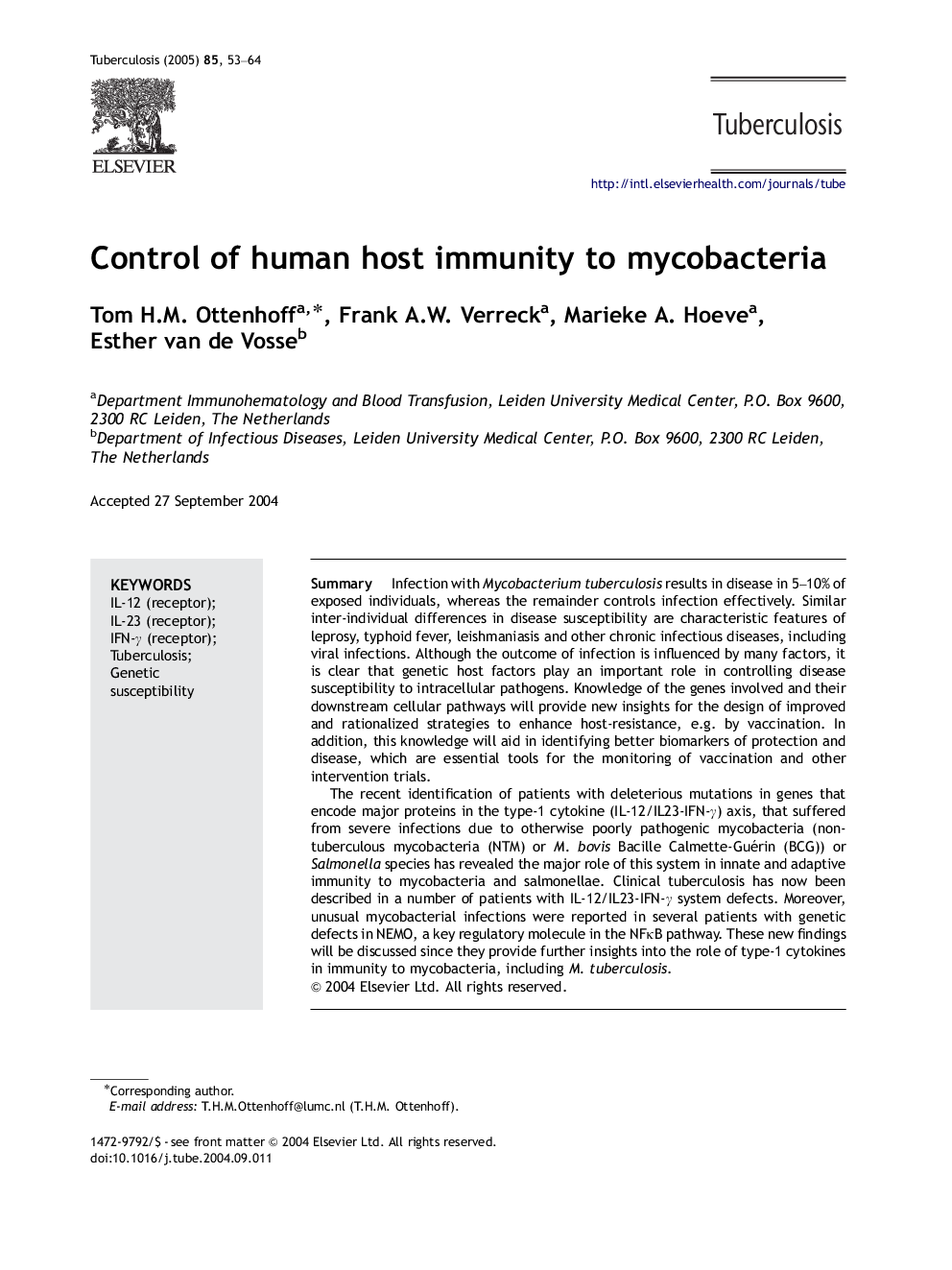| Article ID | Journal | Published Year | Pages | File Type |
|---|---|---|---|---|
| 8969243 | Tuberculosis | 2005 | 12 Pages |
Abstract
The recent identification of patients with deleterious mutations in genes that encode major proteins in the type-1 cytokine (IL-12/IL23-IFN-γ) axis, that suffered from severe infections due to otherwise poorly pathogenic mycobacteria (non-tuberculous mycobacteria (NTM) or M. bovis Bacille Calmette-Guérin (BCG)) or Salmonella species has revealed the major role of this system in innate and adaptive immunity to mycobacteria and salmonellae. Clinical tuberculosis has now been described in a number of patients with IL-12/IL23-IFN-γ system defects. Moreover, unusual mycobacterial infections were reported in several patients with genetic defects in NEMO, a key regulatory molecule in the NFκB pathway. These new findings will be discussed since they provide further insights into the role of type-1 cytokines in immunity to mycobacteria, including M. tuberculosis.
Keywords
Related Topics
Life Sciences
Immunology and Microbiology
Applied Microbiology and Biotechnology
Authors
Tom H.M. Ottenhoff, Frank A.W. Verreck, Marieke A. Hoeve, Esther van de Vosse,
